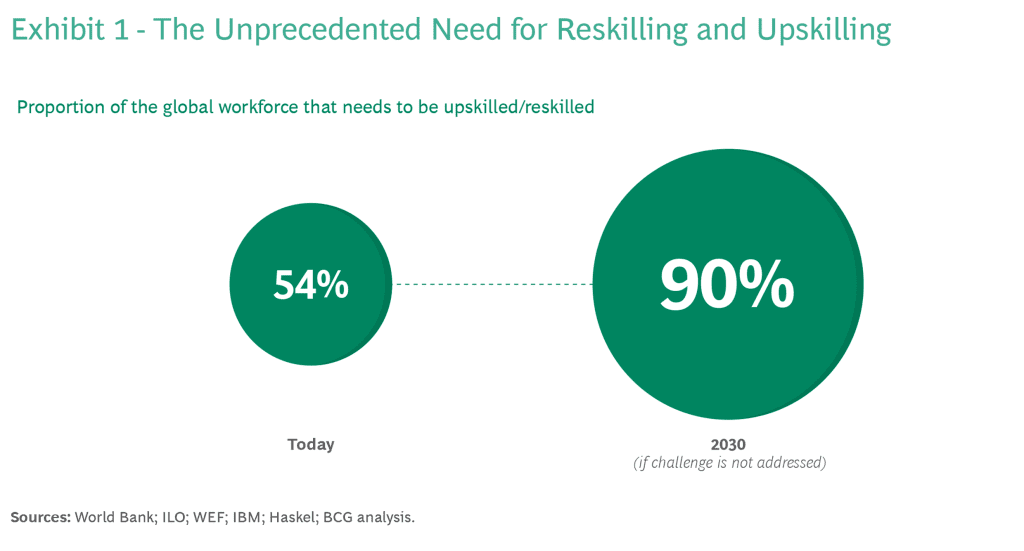Governments around the world are grappling with a significant skills gap in their national workforces. Fifty percent of today’s global working population needs to upskill or reskill to stay competitive; by 2030, the World Economic Forum projects this will grow to 90%. (See Exhibit 1.) Failure to address this issue could result in a staggering global GDP loss of up to US$15 trillion by 2030.

Key stakeholders have invested significant sums to address this challenge, however, current solutions continue to fall short. Corporate programs fail to reach 70% of small company and informal economy workers, according to BCG research and analysis. Academic institutions aren’t prepared to accommodate millions returning to school and tend to offer disconnected and lengthy programs. Online education has limited accessibility, leading to low completion rates. And public- and nonprofit-driven efforts often lack industry alignment. The result of these shortcomings is an inability to create impact at scale.
Governments are uniquely positioned to address the fundamental challenges in the market that have contributed to the current crisis. To so effectively, governments must play a crucial role as orchestrators of the skills ecosystem. Based on our research into more than 80 global skills ecosystems and 10 government-based interventions, alongside conversations with skilling experts, we propose three strategies for governments and policymakers to create a thriving skills ecosystem in their countries.


